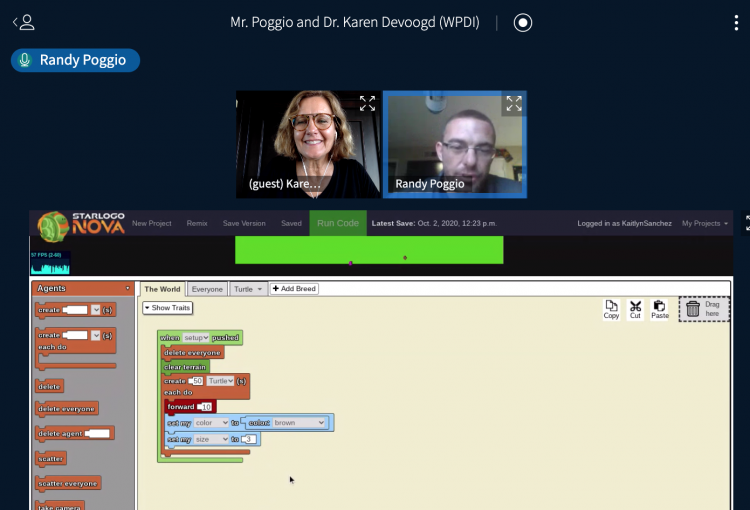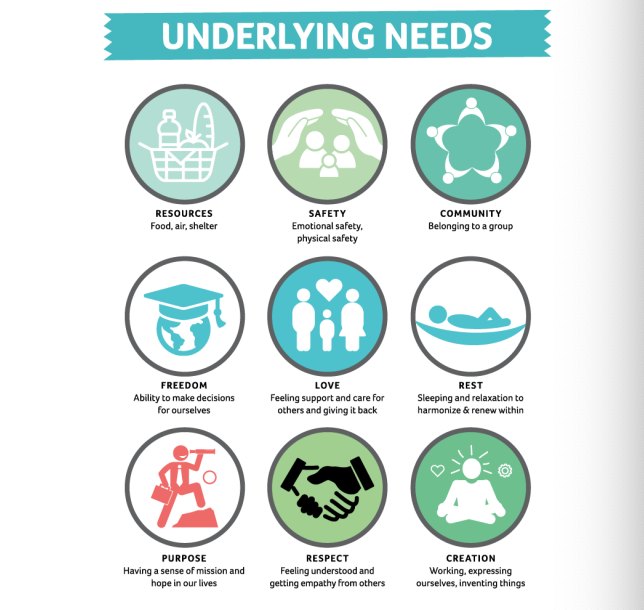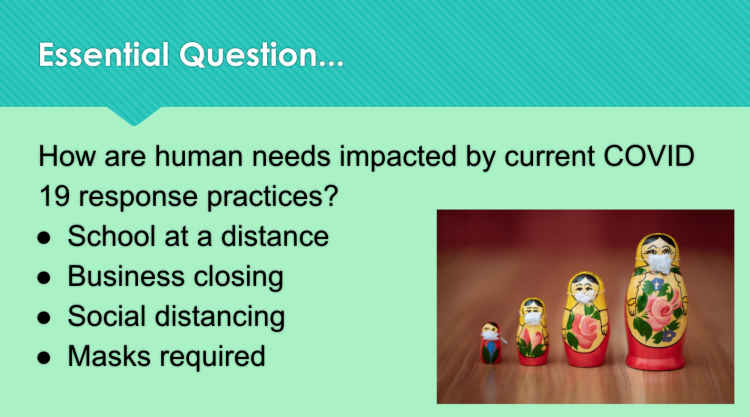October 28, 2020 – This year has been a school year like none other! Despite the many challenges facing the educational system in the United States in the wake of COVID-19, the Whitaker Peace & Development Initiative (WPDI) has continued, through its Domestic Harmonizer Program (DHP), to stand with our partner schools during the pandemic to support teachers and students using online instruction for our Conflict Resolution Education (CRE) curriculum. Teachers have responded with incredible resilience and creativity. An example of a high impact, innovative project this fall was created by Mr. Randy Poggio, a science teacher at Ball Jr. High School in Anaheim, California – one of our partner schools.

Recently, Mr. Poggio involved his 7th grade science classes in project-based learning to understand the reality of COVID-19’s infectious spread, using coding to create a simulation of disease transmission through contact. In this project, students were required to research data provided by public health sources, describing a community of their choice. He then challenged students to work with this data to outline the current state of COVID-19 cases if guidelines for reducing spread are followed or not followed. The coding work provided the mathematical model to display the anticipated results. Wishing for students to grasp more complex dimensions of the process, Mr. Poggio invited WPDI to create content to complement his course, specifically focusing on defining human needs. Participating in all the online classes, the DHP team guest taught all online classes and elaborated on the concepts of conflict as unmet needs, with a total of 190 students ultimately completing the project.
“The work that Mr. Poggio has taken on with his students is truly exemplary. By involving students to make meaning out of the current state of living with COVID-19 using science and math standards and then adding complexity of understanding the conflict makes their learning powerfully real,” says Karen DeVoogd, Conflict Resolution Education Trainer for WPDI. “The narrative that students will carry forward from this learning will stay with them forever. They are now experts in charting out the impact on human experiences from this pandemic.”

During the live sessions led by DHP, students were asked to reflect on their current experiences and how COVID-19 policies have impacted their needs positively and negatively. Students responded very openly with newly gained insight on human needs based on interactive technology that was used during the training. Students highlighted both positive and negative aspects of the pandemic as well as needs that were being both met and not met during this time. For example, a student wrote, “A positive thing is spending more time with my family.” Another student commented that “a challenge is having to attend school online when technology doesn’t cooperate.” Other comments included “a challenge that we went through is that we ran out of food and other needed resources” and “one challenge I am having is that I am worried about my dad’s job and what will happen to it because he has worked at Disneyland for 30 years and lots of people are getting laid off from Disneyland.” This project helped the students to look at their current situations in a broader context, learning to adopt more complex and nuanced approaches of their own.

Mr. Poggio offers some hope and insight during these unprecedented times. “The world will lose life, but the Human Spirit will be invigorated, awakened to our connection to one another, but most importantly with nature and mother earth. 2020 will be known for the virus for humans, but for Mother Earth for the beginning of new life and the awakening. Science will be of more value. This will be but a glimmer of this new life and awakening. Habitat loss, food sources, and our connectivity with Mother earth will be re-evaluated, and that this virus that took human life, gave life back to nature, and gave humans a new mindset, a new spirit. I hope that by the end of the COVID-19 pandemic, humans emerge from their homes with a new understanding for their relationship with the natural world and each other.”